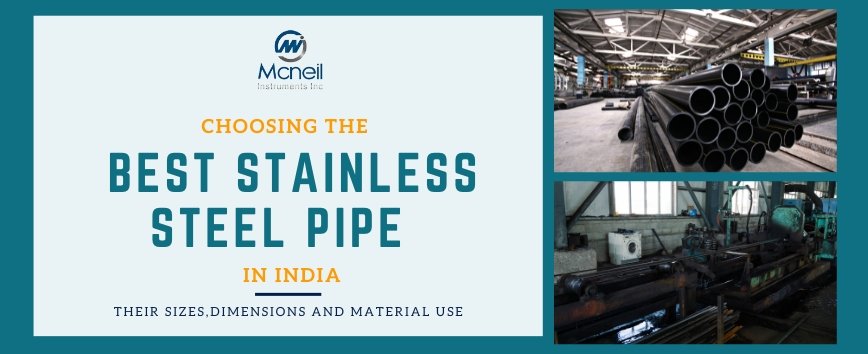Stainless steel pipes are versatile and durable tubes used in various industries for transporting liquids and gases. They are made from an alloy of steel with chromium, which makes them resistant to corrosion, rust, and staining, even in harsh environments. This unique property makes stainless steel pipes ideal for a wide range of applications, from plumbing to industrial processes.
Properties of Stainless Steel Pipes
Stainless steel pipes have several key properties that make them advantageous:
- Corrosion Resistance: The chromium content in stainless steel forms a protective oxide layer on the surface, which prevents corrosion and rusting, even when exposed to moisture or chemicals.
- Strength and Durability: Stainless steel pipes are strong and durable, making them suitable for high-pressure and high-temperature applications. They can withstand extreme conditions without deforming or breaking.
- Hygienic: Stainless steel is non-porous and easy to clean, making it ideal for applications where hygiene is crucial, such as in food processing or pharmaceutical industries.
- Aesthetic Appeal: Stainless steel pipes have a sleek and modern appearance, making them suitable for architectural and decorative purposes as well.
Types of Stainless Steel Pipes
There are various types of stainless steel pipes available, each designed for specific applications:
- Seamless Pipes: These pipes are manufactured without any welding seam, resulting in a smooth interior surface. Seamless pipes are preferred for applications requiring high-pressure resistance.
- Welded Pipes: Welded stainless steel pipes are made by rolling a flat plate and welding the seam. They are cost-effective and suitable for applications where the pipe doesn’t need to withstand high pressures.
- ERW Pipes: Electric Resistance Welded (ERW) pipes are made by forming a strip of steel into a cylindrical shape and welding the edges together. They are commonly used in structural and mechanical applications.
- LSAW Pipes: Longitudinal Submerged Arc Welded (LSAW) pipes are manufactured by bending and welding steel plates. They are used in oil and gas pipelines and structural applications.
Stainless Steel Pipes Specification, Sizes, and Dimensions
Below is a table showcasing various specifications, sizes, and dimensions of stainless steel pipes commonly used in different applications:
| Pipe Type | Specification | Size Range (Outer Diameter) | Wall Thickness Range | Length (Standard) |
|---|---|---|---|---|
| Seamless Pipe | ASTM A312 / A213 / A269 | 1/8″ – 24″ | SCH 5S – SCH 160 | 20 feet |
| Welded Pipe | ASTM A312 / A358 | 1/2″ – 48″ | SCH 5S – SCH 80S | 20 feet |
| ERW Pipe | ASTM A312 / A358 | 1/2″ – 24″ | SCH 10 – SCH 80 | 20 feet |
| LSAW Pipe | ASTM A312 / A358 | 16″ – 72″ | SCH 10 – SCH 80 | Custom |
| Stainless Steel Tubing | ASTM A269 / A554 | 1/4″ – 4″ (Fractional Sizes) | 0.035″ – 0.120″ | 20 feet / Coils |
| Specialized Pipes | ASTM A312 / A511 / A789 | Various Sizes | Various Thicknesses | Custom |


